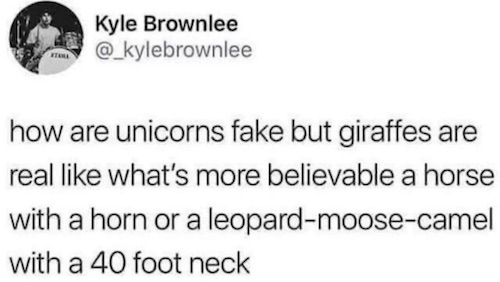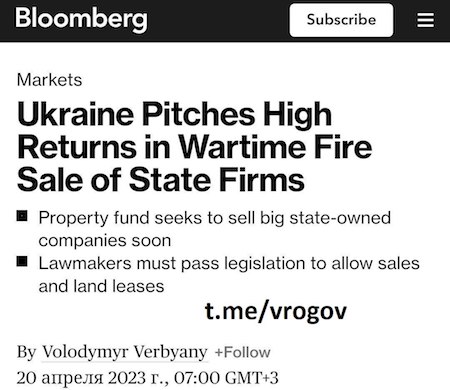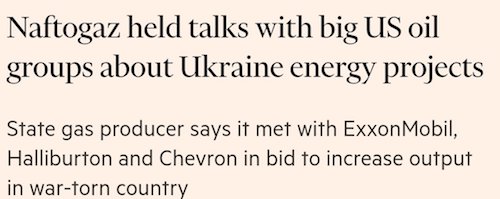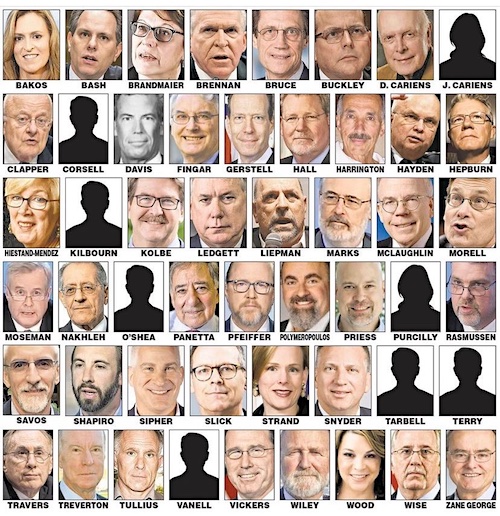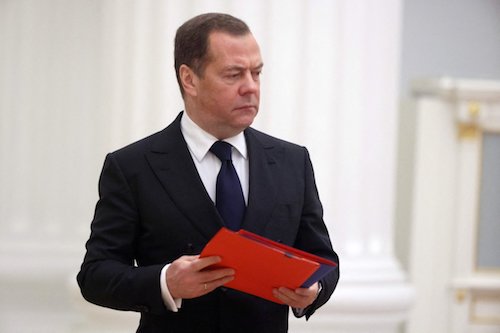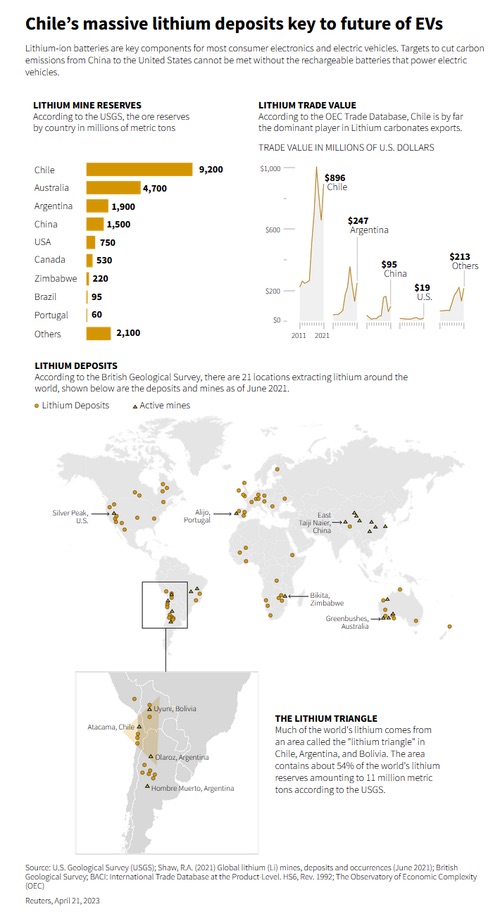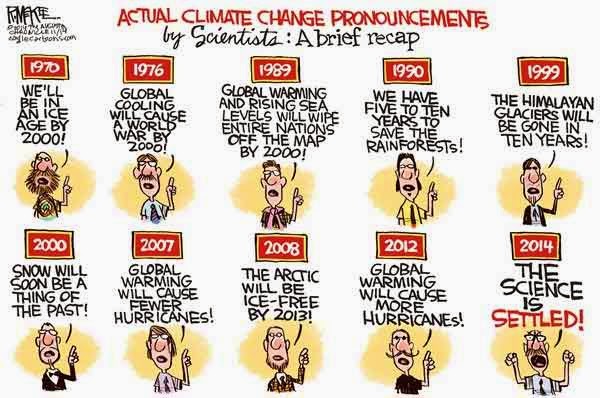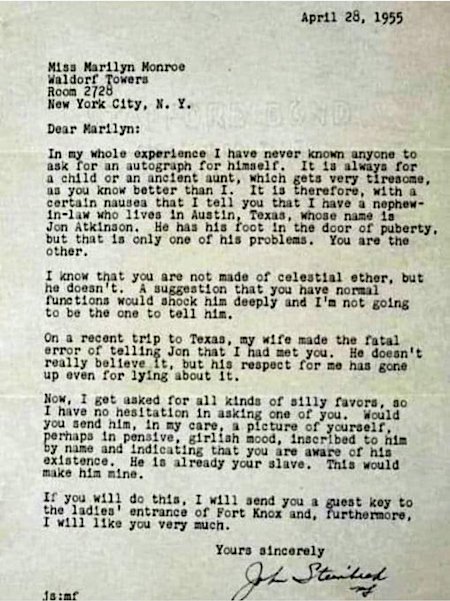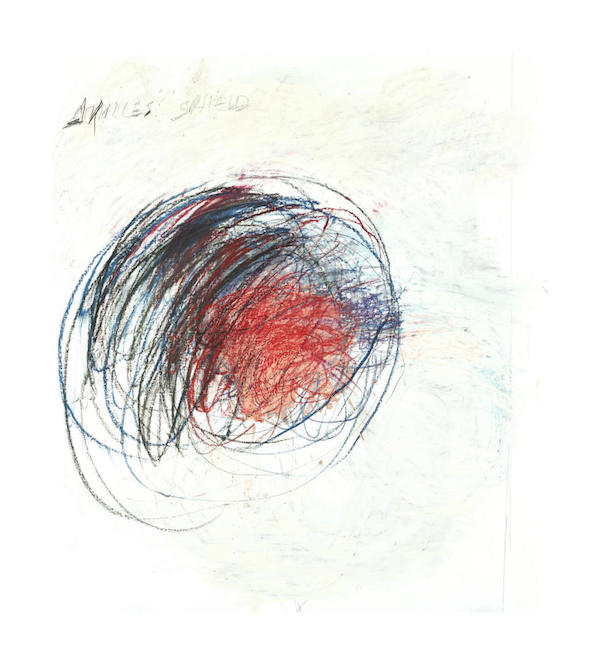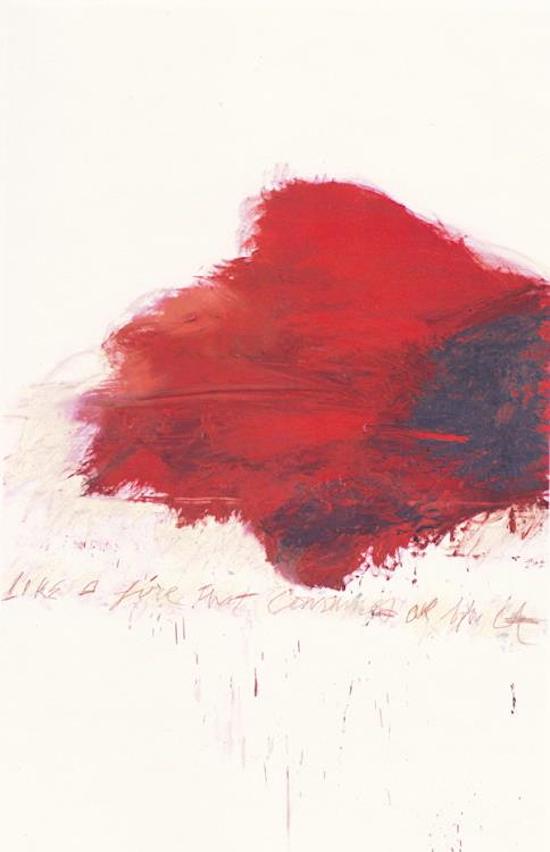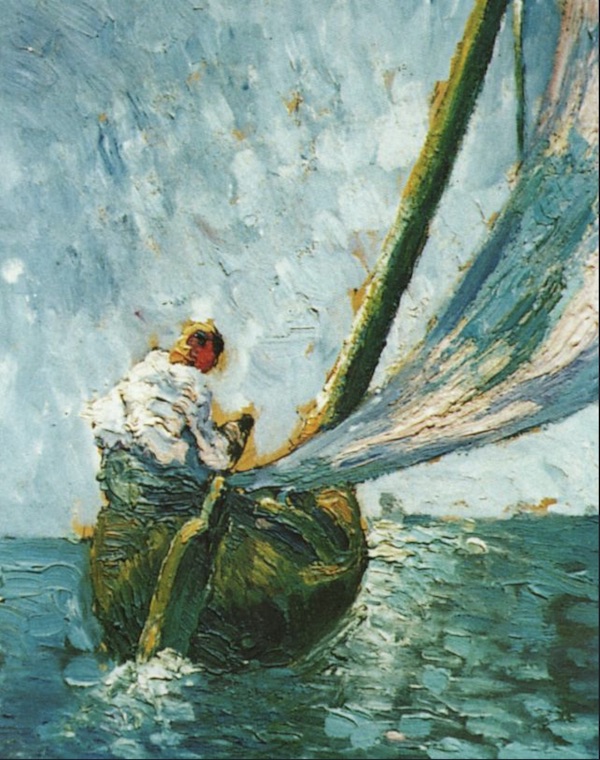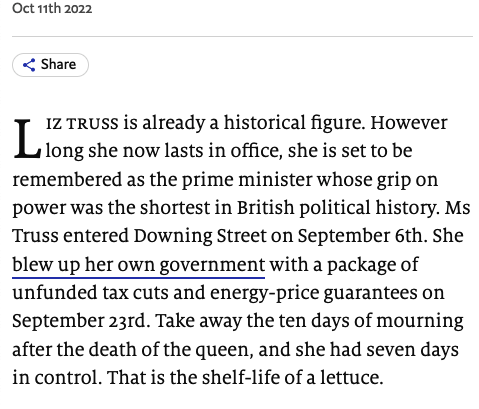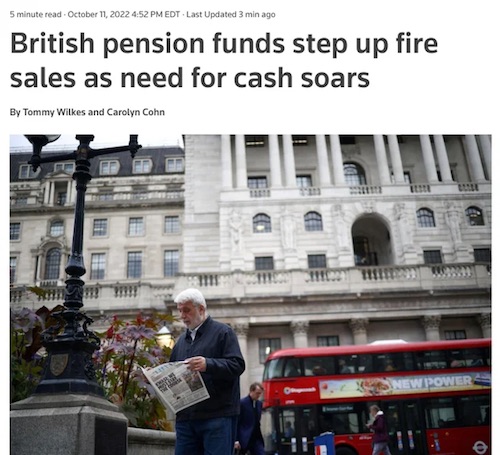
James McNeill Whistler Arrangement in Pink, Red and Purple 1883-4


Fundraiser
FLASHBACK – HOW THINGS CHANGE: Mainstream media praising Biden for raising $25 million in New York, calling it 'the most successful political fundraiser in history,' and now wondering how Trump raised double that amount. WATCHpic.twitter.com/FcABWXU5pA
— Simon Ateba (@simonateba) April 7, 2024

Palestine
Palestine is the only country in the world where you can’t hold a Palestinian flag, and posting pictures of a loved one that was murdered by the zionists comes with a jail term…🇵🇸💔
— Pelham (@Resist_05) April 7, 2024

Pepe
💥 Eurasia v. NATOstan: The Defining Struggle of Our Time
Pepe Escobar joins us to discuss his new book, which examines the upcoming clash between the Western Empire of Chaos and the Eurasian-led multipolar world order.#NewRulesPodcast @RealPepeEscobar pic.twitter.com/ms2IM7OBe9
— NewRulesGeopolitics (@NewRulesGeo) April 4, 2024

Putin Macron
https://twitter.com/i/status/1776833714820989431


Temperance is a tree which has for its root very little contentment, and for its fruit calm and peace. – Buddha


“..that the US needs to defend against a Russian or Chinese invasion is an absurdity when the US is being overrun daily by immigrant-invaders..”
• Facing Nuclear War (Paul Craig Roberts)
The invention of nuclear weapons was an act of total insanity. If the massive stockpiles of nuclear weapons are not dismantled and destroyed, sooner or later they will destroy planet Earth. We have survived so far because the Cuban Missile Crisis awoke President Kennedy and Soviet leader Khrushchev to the danger of distrust between nuclear powers. For the remainder of the 20th century Washington and Moscow worked to defuse tensions and to build transparency and trust. Sufficient success was achieved to avoid false indications from warning systems showing incoming ICBMs from resulting in the launch of nuclear war. Today there is no trust. In the 21st century all of the arms agreements hammered out over the decades of the Cold War have been abandoned, first by Washington and then in response by the Kremlin. The Soviet collapse in 1991 gave rise to the neoconservative doctrine of US hegemony, an assertion of American unilateralism, a claim of American supremacy. Such an absurd and unrealistic claim is totally inconsistent with the existence of nuclear weapons.
All trust has been erased. In the US Russia has been demonized to an unprecedented extent. It is so extreme that anyone who gives an objective analysis is branded a “Putin agent/dupe.” This makes realistic assessments impossible. In Russia trust of Washington has been completely destroyed by broken promises, such as NATO will not move one inch to the East, broken arms agreements, deceit over the Minsk Agreement, and by Washington’s endless rejections of Russian requests for a mutual security agreement. Today all it takes for the world to end is one false warning of incoming missiles. It was Washington, not Russia, that created this situation, and nothing is being done about it. The world is content with the Sword of Damocles hanging by a thread over the planet. Whenever I raise this most serious of all issues, a gaggle of idiots pronounce that nuclear weapons will never be used because there can be no winners. All the while Putin is warning that Washington and its NATO puppets are pushing Russia into nuclear war. There is no end of people too stupid to see the dire threat.
If Biden, the defense secretary, anyone in Washington had any sense, they would call Putin and declare that we need more than a mutual security agreement. We need to dismantle and destroy all nuclear weapons–the US, Russia, China, India, Pakistan, North Korea, Israel, France and the UK. To demonstrate our newly acquired good intentions, Washington should announce that it is closing its worldwide network of illegal bioweapon research laboratories and abandoning its effort to substitute Washington’s self-serving “rule-based order” for established international law. The notion that the US needs to defend against a Russian or Chinese invasion is an absurdity when the US is being overrun daily by immigrant-invaders. According to official numbers, immigrant-invaders recruited from 160 countries by NGOs financed with federal tax dollars are entering unopposed our country monthly in numbers equivalent to the population of Pittsburgh.

“..intransigent Sunnis, who don’t know their place of half devil and half child in the Pax Americana’s scheme of things..”
• Take up the NATO Man’s Burden. Send Forth The Worst Ye Breed (Hayes)
Fast forward to Easter 2024 and consider this report by Irish state broadcaster RTE on Israel’s latest attack on the Zaynab shrine. Note how this Irish government outlet (feebly) argues that Israel is entitled to attack the shrine and to hell with the collateral human damage because it is a Hezbollah (read Shia) stronghold. The reality, had these genocidal apologists bothered to check, is that Hezbollah have to guard all Shia locales because Israel and their NATO proxies continually attack them and slaughter every and all Shias that they can. Think of a Russian Orthodox Church in Western Ukraine and you get the picture. I asked a good friend of mine, a female secular Sunni tour guide, if the Zaynab shrine was always so heavily guarded. She said that prior to NATO’s war against Syria, it only had normal security, the type that would be common in the mid West of the USA. Syria, before NATO launched its genocidal war against it, was considered one of the safest countries one could travel in. And that was probably their mistake, that it looked like easy meat for NATO’s cut throats.
But let’s forget Syria and Maaloula (which the Western media conveniently forgot about once Hezbollah and the Syrian Army freed it from NATO’s nun-torturing proxies). Let’s move on to Gaza or, rather to the BBC’s sickening coverage of it, as exemplified by examples of the BBC’s complicity in this most disgusting of war crimes. The sufferings the people of Gaza are enduring is the plainest example there is today of a war crime committed by war criminals, who should answer for their crimes. That the BBC considers Gaza is just some sort of pedantic philosophical talking point is a criminal indictment of the BBC on a par with anything the Nazis stood accused of in Nuremberg. And then there is NATO’s most recent criminal attack on Moscow, which is brilliantly addressed here by British maverick Russell Brand, who uses [an] article from WSWS, which often features in this site’s Editor’s Picks.
Although Brand easily and convincingly argues that NATO’s instant denials of Ukrainian intelligence involvement in these terror attacks are not in the least credible, Maaloula, Zaynab, Gaza and a million other places show that the criminal case against NATO goes much further and deeper than that. We have, in essence, two great forces operating against each other in the West. On the one hand, we have the business model of NATO and Israel, which see themselves fulfilling their manifest destiny by cleansing the lands they conquer of Shias, Armenian Christians, and elderly Russian monks and nuns. Their logic is quite simple. By cleansing the Middle East of its minorities, NATO can argue that the war there is between their pampered Israeli puppets and intransigent Sunnis, who don’t know their place of half devil and half child in the Pax Americana’s scheme of things.
On the other side of the ledger sheet, you have the Armenians, the Assyrians, the Mandaeans, the Shia, the Yezidi, secular Sunnis and many more who just want to live out their lives in peace, observing the customs their ancestors have observed since the dawn of time. This is not so much the Clash of Civilizations NATO’s mouthpieces harp on about but NATO, being utterly devoid of civilisation, trying to wipe everything from Maaloula and Zaynab to Dostoevsky, Tolstoy and Masha and Mishka from the face of the earth. Hyperbole? Consider the case of former British Prime Minister Boris Johnson, the man who flew to Kiev to order the cross dressing Zelensky to fight to the last pregnant woman. This “cultured” man suggested that Palmyra, one of the jewels in Syria’s cultural crown, be allowed fall into ruin but that it should be recreated in some British controlled virtual world or other. True to form, this modern day Kipling has not a thought on how Palmyra, Maaloula or Zaynab fit into the greater glory of Greater Syria and the entire Fertile Crescent. Johnson would make a good Israeli, brash, boorish, and so arrogantly full of piss and wind that he is.

“..John Kirby said the US did not know whether American-supplied weapons were used in the Israeli strike..”
• US Reluctant to Cut Off Israel’s Arms Pipeline (Sp.)
Despite the verbal rhetoric and political fanfare emanating from the White House over Israel’s actions in Gaza, the Biden administration shows no willingness to cut off Tel Aviv from Washington’s arms supplies. While Biden urged Israeli Prime Minister Benjamin Netanyahu to take steps to minimize civilian harm in the war against Hamas, at no point during a recent phone call did he specifically threaten to limit US arms shipments, according to media reports. Biden “has the power to limit any foreign arms deliveries, even those previously approved by Congress,” the New York Times noted. But there was no specific “or else” delivered by Biden to Netanyahu during their exchange, the outlet added, citing officials. The call itself was inevitable, prompted by a wave of outrage over Israel’s deadly strike on the World Central Kitchen (WCK) humanitarian convoy in Gaza.
The Israeli strike killed seven WCK workers from Australia, Poland, the United Kingdom, and Palestine, as well as a dual citizen of the United States and Canada. Their humanitarian convoy was traveling in a “deconflicted zone” in two armored vehicles emblazoned with the organization’s logo and a soft-skinned vehicle when it was attacked. The team had just unloaded more than 100 tons of food aid it had brought into Gaza. After the strike, Israeli Prime Minister Benjamin Netanyahu said Israeli troops had “unintentionally harmed non-combatants” in Gaza, adding that “this is what happens in war. The flood of official statements from the White House stands in stark contrast to the detachment the US has shown in the face of the escalating civilian death toll in Gaza since the Palestinian-Israeli conflict escalated in the wake of the Hamas attack on October 7. 32,916 Palestinians have died since hostilities began, according to Gaza health officials.
U.S. President Joe Biden told Israeli Prime Minister Benjamin Netanyahu on Thursday that the strike on humanitarian workers and the overall humanitarian situation in Gaza were “unacceptable.” White House national security communications adviser John Kirby said the US did not know whether American-supplied weapons were used in the Israeli strike. The US is the largest supplier of arms to Israel. It will account for 69% of Israel’s arms imports between 2019 and 2023, according to the Stockholm International Peace Research Institute (SIPRI). The US signed a ten-year military agreement with Israel in 2016 that guarantees Israel $3.3 billion a year to purchase weapons from the US. An additional $500 million per year is earmarked for missile defense. “The continued supply of the world’s most advanced weapons technology will ensure that Israel has the ability to defend itself from all manner of threats,” former President Barack Obama said at the time.

“Berlin and Paris Should Spearhead Efforts To End The Bloodshed..”
• Ex-German Chancellor Calls For Diplomatic Solution To Ukraine Conflict (RT)
Berlin and Paris should be leading the way toward a negotiated solution to the Ukraine conflict, Gerhard Schroeder, who served as German chancellor between 1998 and 2005, has argued. The veteran politician also refused to disavow his long-time friendship with Russian President Vladimir Putin, adding that it could make him a good mediator in the current situation. In 2014, Schroeder threw a birthday party in St. Petersburg, with the Russian leader in attendance. Back in 2006, he became the head of the shareholders’ committee of Nord Stream AG, later also accepting a role on the board of Russia’s Rosneft energy giant. Schroeder stepped down from the latter post several months after the conflict between Russia and Ukraine began in February 2022. In an interview with Suddeutsche Zeitung published on Thursday, the 80-year-old expressed the view that it is still possible to secure a peace deal. “I am firmly convinced that [President] Putin is also interested in that,” Schroeder clarified.
The former German chancellor told the newspaper that he did not believe the conflict would spread further beyond Ukraine, or that it would lead to the use of nuclear weapons. He also lauded German Chancellor Olaf Scholz for refusing to provide long-range Taurus missiles to Ukraine. However, according to the politician, Germany and France should do more on the diplomatic front to end the bloodshed. Schroeder also expressed cautious optimism over the fact that there is now talk within the ruling Social Democratic Party about potential ways out of the Ukraine conflict, such as the freezing of the hostilities. In an interview with the press agency dpa last week, he similarly named diplomacy as the only way out of the crisis.
Speaking of his personal ties to the Russian president, Schroeder said: “We have worked together sensibly for many years. Perhaps that can still help to find a negotiated solution.” The former chancellor has previously called for a diplomatic resolution, claiming that Western Europe “failed” to seize the opportunity to push for peace in March 2022 during talks between Kiev and Moscow in Istanbul. Around the same time, Schroeder himself reportedly traveled to Türkiye and Russia on a “peace mission.” Russia has repeatedly asserted that it is in principle ready to engage in peace negotiations with Ukraine. According to Moscow, Kiev and its Western backers, however, have been setting unrealistic preconditions for talks.

But the career puppet also says: “real peace” can only be achieved with a Ukrainian victory..”
• Ukraine May Have To Compromise With Russia – Stoltenberg (RT)
Ukraine may ultimately have to agree to some kind of compromise with Russia to end the conflict, NATO Secretary General Jens Stoltenberg has said. In an interview with the BBC published on Saturday, the NATO chief reiterated that the West must support Ukraine in the long term “even if we believe and hope that the war will end in the near future.” He added that Western countries should invest in Kiev’s defense capabilities to make it more resilient in the event of future hostilities. At the same time, he signaled that it was up to Ukraine to choose when and under what conditions to seek peace with Russia. “At the end of the day, it has to be Ukraine that decides what kind of compromises they’re willing to do,” Stoltenberg said, adding that the West’s role is to help Kiev reach a negotiating position that could produce an “acceptable result.”
That said, Stoltenberg emphasized that he was not pushing Kiev toward any concessions, adding that “real peace” can only be achieved with a Ukrainian victory. Earlier this week, the NATO boss made a strong plea to support Kiev in the long term, urging the bloc’s members to “rely less on voluntary contributions and more on NATO commitments.” According to several reports, Stoltenberg proposed a five-year €100 billion ($107 billion) military aid package to Ukraine. The exact details of the initiative are reportedly now under discussion. Throughout the conflict, Russia has maintained that it is open to talks with Ukraine. However, Ukrainian President Vladimir Zelensky banned any negotiations with the current leadership in Moscow after four former Ukrainian territories overwhelmingly voted to join Russia in the autumn of 2022.
The Ukrainian leader has been advicating a ten-point ‘peace formula’ demanding that Moscow withdraw its troops from territory Kiev claims as its own, as well as for a tribunal to be established to prosecute Russian officials for alleged war crimes. Moscow has dismissed the initiative as “detached from reality.” In an interview with Politico on Saturday, Zelensky’s chief of staff, Andrey Yermak, claimed that while Ukrainians were tired of the conflict, they would vehemently oppose any compromise with Russia. However, last month Zelensky suggested that a return to Ukraine’s 1991 borders was no longer a precondition for negotiations with Russia. Nevertheless, he still insisted that Kiev must regain the territory it lost to Moscow in 2022. Moscow has said Ukraine must take into account the fact that its borders have changed drastically since the start of the hostilities.

“The greatest lie of all is the one about Russia having its sights on European countries to invade and conquer..”
• Stoltenberg’s Dido Moment Might Put A Halt To West’s Lies (Jay)
Lying seems to be the ubiquitous theme now of NATO and western elites so I can be forgiven. Those were, of course the immortal words of Dido from the song White Flag – a narrative which would work well with the NATO supremo who you could easily imagine singing along too at the lights in Oslo in his Volvo estate with the “baby on board sticker” on the rear window. In reality, ponder what the old fool really said. “The sooner we can convince Moscow that it will not win on the battlefield, the sooner we can reach a peace agreement in which Russia understands that it cannot win the war, but must sit down and negotiate an agreement in which Ukraine becomes a sovereign, independent state.” Interesting how the official line is shifting all the time. Our man Jens is now talking about Russia “not winning” compared to Biden just a few weeks ago who told press room wasters that “Putin was losing in Ukraine”.
But here is our NATO man actually now calling for peace talks as it becomes embarrassingly patent that NATO has nothing to celebrate on its birthday and that Ukraine is falling village by village, town by town, to Russian forces. Of course Ukraine and NATO are both banking on the Americans signing off a 60bn dollar of military aid for Ukraine, as though that will make a difference to a war machine which siphons off so much which arrives in Kiev, leaving some pundits recently writing about how much even the staplers in government ministries are being stolen each day, such is the depth and severity of the crisis. But it’s the lying and level of lying which is astonishing. As Anthony Blinken stunned journalists just recently by saying that “Ukraine will join NATO” – perhaps the biggest lie ever of the entire war as western leaders know this is impossible and can never happen, without, that is the full defeat and exit of Russian forces. Actually it’s the second biggest lie.
The greatest lie of all is the one about Russia having its sights on European countries to invade and conquer which is something that Stoltenberg constantly says but not one EU leader believes which is evident in their irresponsible depletion of their own missiles. Macron also plays a key role in the manufacture of these untruths with his recent success in convincing journalists to write up the “we could send French troops into Ukraine” when, in fact, he packed that statement with so many caveats that he really didn’t say it at all. What is clear is that there is a state of panic now which is palpable from the West in general and that Macron, as well as NATO leaders, are having informal talks – or at least are having talks about possible talks – with Russia over some sort of what the Americans like to call an “off ramp” for Ukraine and the West. You could call it a “white flag” which has probably left you humming the song.

“..rebuking US lawmakers for what he called an “immature approach” to the conflict and global security as a whole..”
• Kiev ‘Hostage’ To US Politics – Zelensky (RT)
Ukraine’s issues have become caught up in US domestic politics and this jeopardizes its ability to fight against Russia, President Vladimir Zelensky has complained. At this stage Kiev, he explained on national TV on Saturday, would agree to any kind of support from Washington, even in the form of a loan. Zelensky expressed hope that the US Congress would eventually approve a supplemental aid package for Kiev which has been in limbo for months worth of tens of billions of dollars. Describing the long-awaited assistance as critical, Zelensky said he believes that “we can get a positive vote from the US Congress.” “Unfortunately, we are hostage to the fact that this is the electoral process… Russia’s war against Ukraine has today become an internal political issue in the United States,” he complained, rebuking US lawmakers for what he called an “immature approach” to the conflict and global security as a whole.
The Ukrainian president also signaled that Kiev would accept assistance from the US in the form of a loan. “You know, one senator was recently there, and he asked: would you agree to loan money? Let’s be frank: we will agree to any option,” he said, adding that Ukraine’s fate is hanging in the balance. Zelensky was referring to senior Republican Senator Lindsey Graham, who traveled to Kiev last month to promote the loan idea first put forward by GOP presidential frontrunner Donald Trump. Graham claimed at the time to have been direct with Zelensky, telling him, “it’s not unfair for me to ask you and other allies: Pay us back down the road, if you can.”
Later, Politico reported that while Kiev is ready to consider the proposal, some Ukrainian officials find it “somewhat offensive.” US President Joe Biden has been urging Congress for several months to approve his aid package which would earmark $60 billion for Ukraine. Many Republicans have opposed the measure, demanding more efforts to strengthen security on the Mexican border. However, House Speaker Mike Johnson signaled earlier this month that the package could come up for a vote soon with “some important innovations,” including a proposal to extend a loan to Ukraine, as well as seizing frozen Russian sovereign assets and transferring them to Kiev. Moscow has described the blocking as “theft” and warned of retaliation if the funds are seized.

UK Foreign War Secretary David Cameron also gets involved in domestic US politics?!
• UK To Pressure US House Speaker On Ukraine Aid (RT)
UK Foreign Secretary David Cameron is planning to use his upcoming trip to the US to persuade House Speaker Mike Johnson to unblock a $61 billion military aid package for Ukraine, the Telegraph reported on Sunday, citing sources at the Foreign Office. The additional funding has been delayed for several months due to political in-fighting in Congress. Cameron will fly to Washington, DC next week to meet with Johnson, as well as US Secretary of State Antony Blinken, the Telegraph said. “If Congress does not help Ukraine, Ukraine will lose the war,” President Vladimir Zelensky warned earlier this week, following multiple complaints about the shortage of ammunition on the battlefield. Cameron renewed his appeal to keep helping Kiev in a piece for the Telegraph on Sunday, arguing that the West must “stop” Russian President Vladimir Putin.
“Ukraine must win this war. If Ukraine loses, we all lose. The costs of failing to support Ukraine now will be far greater than the costs of repelling Putin,” Cameron wrote in an op-ed co-authored with French Foreign Minister Stephane Sejourne. He previously argued on social media that the security of the US, UK and EU is “on the line in Ukraine.”
Earlier this year, the British government stepped up its military assistance to Ukraine, pledging $3.2 billion in military aid, while the EU unveiled a plan to provide €50 billion ($54 billion) in loans and grants. House Republicans, however, have so far refused to advance the aid bill sought by President Joe Biden, arguing that the White House should agree to tougher border security measures. Johnson said before Congress went on a two-week Easter break that he was working on “important innovations” to the proposed legislation, signaling that the bill could be put to a vote soon. Russia has repeatedly said that no amount of foreign aid will change the course of the conflict in Ukraine, and will merely increase the risk of a further escalation.

“..abandon the car near the border” and then call their handler for further instructions..”
• FSB Reveals Crocus City Attackers’ Plan To Escape To Ukraine (RT)
Two escape routes were prepared in Ukraine for the terrorists who attacked a packed concert hall outside Moscow last month, Russia’s Federal Security Service (FSB) said on Sunday. The FSB showed snippets from interrogation videos, in which the suspects confessed that they were promised money in Kiev. On March 22, four Tajik nationals opened fire inside the Crocus City Hall music venue and then set the building on fire. A total of 145 people were killed and more than 500 were injured in the attack. The suspected assailants were detained the next day while trying to flee to Ukraine by car, the authorities said. More suspects were arrested in the following days, most of them of Tajik origin. The jihadist group Islamic State Khorasan Province (ISIS-K) has claimed responsibility for the attack. FSB chief Aleksandr Bortnikov, however, suggested that the US, UK, and Ukraine may also be linked to the attack, possibly using Islamists as proxies. Ukraine and its Western backers have denied any involvement.
In the interrogation videos aired on Russian TV, the suspects said that they were following instructions from the handler they knew as Sayfullo. The authorities are currently working to determine his identity. The handler told the suspects to escape to Ukraine where they expected to receive 1 million rubles each ($11,000), they said. “Sayfullo told us that guys would wait for us at the Ukrainian border and that they would help us to cross the border and arrive in Kiev,” suspect Muhammadsobir Fayzov told his interrogator. According to investigators, the suspects took the M3 highway that leads to the border with Ukraine, but were eventually intercepted about 140 kilometers (87 miles) from Ukraine’s Sumy region.
Suspect Shamsidin Fariduni said that they were told to “abandon the car near the border” and then call their handler for further instructions on how to cross into Ukraine. Russian officials said previously that a “window” for crossing the border had been arranged on the Ukrainian side.The FSB said on Sunday that the Ukrainians were conducting “demining activities” near the villages of Chuykovka and Sopych, which points to two possible escape routes. According to investigators, the suspects were expected to destroy their vehicle and cross the border on foot, using woodlands as cover. Russia’s Investigative Committee said earlier this week that pro-Ukrainian images were discovered on the phone of one of the suspects.

“Such reckless attacks significantly increase the risk of a major nuclear accident and must cease immediately,” Grossi was quoted as saying..”
• IAEA Chief Calls Attack on Zaporozhye NPP Violation of Security Principles (Sp.)
International Atomic Energy Agency (IAEA) Director General Rafael Grossi characterized the recent drone attack on the Zaporozhye nuclear power plant (ZNPP) as a violation of nuclear security principles and called for an end to such “reckless attacks” Sunday. The IAEA confirmed minor damage to the sixth power unit of the plant as a result of the drone attacks. “This is a clear violation of the basic principles for protecting Europe’s largest [nuclear power plant]. Such reckless attacks significantly increase the risk of a major nuclear accident and must cease immediately,” Grossi was quoted as saying in the IAEA statement. Earlier in the day, Ukrainian kamikaze drones attacked the territory of the power station immediately after an inspection carried out by IAEA experts, the plant’s press service said. The attack left three of the facility’s workers injured, with one of them sustaining serious injuries, Russian state nuclear corporation Rosatom said.
The IAEA had previously confirmed damage to the plant in a separate statement. “IAEA experts confirmed physical impact of drone attacks at ZNPP today, incl. at 1 of its 6 reactors,” the agency said. “One casualty reported. Damage at unit 6 has not compromised nuclear safety, but this is a serious incident with potential to undermine integrity of the reactor’s containment system.” Russian Foreign Ministry spokeswoman Maria Zakharova said the international community must respond to Ukraine’s attack, calling it “an act of nuclear terrorism.” “The world community must realize and react to an act of nuclear terrorism on the part of the Kiev regime,” Zakharova said on Telegram. The Zaporozhye nuclear plant, constructed in the 1980s by the Soviet Union, is Europe’s largest and one of the world’s largest. The massive power station is reportedly now completely reliant on a single 750-kilowatt line for external power after previous attacks.
A connection to outside electricity is necessary to ensure the plant is able to cool its reactors – an interruption in the delivery of power could precipitate a catastrophic meltdown. Russia took control of the sensitive asset in March 2022 and it has endured Ukrainian fire ever since. Ukrainian drones, missiles, and artillery have all been used against the plant by Kiev, which has repeatedly attempted to reassert control. Kiev claims Russia is storing weapons at the power station and using it as cover to attack Ukrainian troops. Observers worry Ukraine may create a disaster at the plant, blaming Russia and spoiling newly-Russian territory. Kiev has repeatedly employed US-provided cluster munitions during fighting in the Donbass, raising the prospect of unexploded bomblets creating a hazard for decades to come.

Long from Brenner.
• Morality Challenged (Michael Brenner)
Is there now a moral void at the heart of Western societies? That question haunts us as governments in the United States and Europe act as accomplices in Israeli’s atrocious crimes against the Palestinians. The Jewish state’s conduct meets the standard of genocide as stated in the United Nations Convention on Genocide of which they all are signatories. Confirmation is likely to come soon in a conclusive determination by the International Court of Justice. The ICJ already in January recognized a prime facie case for genocide. The UN’s top court ordered Israel to take all measures to prevent genocidal acts in Gaza. The ICJ found it did have jurisdiction on the matter, and decided there was a plausible case under the 1948 Genocide Convention. At least some of the acts and omissions by Israel “fall within the provisions of the (Genocide) Convention,” the judges said.
The ICJ issued a set of stipulations “to protect the rights claimed by South Africa that the Court has found to be plausible,” including “the right of the Palestinians in Gaza to be protected from acts of genocide.” One reasonably expected that the stark moral issues thereby highlighted – along with subsequent atrocities – would spark an animated, anguished public debate as a prelude to decisive action. Yet, the political class in its near totality disregards or sublimates them. Silence reigns. Gaza exhibits singular features that set it apart from other relatively recent instances of systematic, targeted attacks on civilians. One, the West’s response is not one of indifference leading to passivity – as in regard to Ruanda.
Governments have been active participants in Israel’s indiscriminate punishment of the Palestinians. They provide Israel with vast amounts of weapons critical to their military assault; they offer unqualified political support and diplomatic cover; they acquiesce in the siege that prevents foodstuffs, medicines and other humanitarian aid from entering the strip – causing mass famine and disease among the civilian population; they lend credence to crude propaganda lines from Jerusalem without question or qualification: the phony rape stories, alleged Hamas nests in hospitals, etc. etc..; they pressure their mass media to publicize those fabrications as hard news; and they suppress both public demonstrations and individual calls for measure to alleviate Palestinian suffering – instead, denouncing them as pro-Hamas and/or anti-Semitic. Germany, France and now Britain have gone so far as to criminalize public expressions of anti-Zionist viewpoints.

“..trying to force people to become like us..”
• Col. Macgregor Urges US to Stop ‘Marching’ Into Foreign Countries (Sp.)
Former Pentagon Adviser Col. Douglas Macgregor said Sunday the United States should stop “marching” into foreign nations to expand their political influence. “We need to stop marching into other peoples countries and trying to force people to become like us,” Macgregor said on the X social media platform. Earlier this week US Secretary of State Antony Blinken claimed the US-led NATO alliance is a defensive organization that has “no designs” to seize the territory of any other country in the world. NATO has carried out bombings and interventions in countries including Libya, Yugoslavia, Iraq and Afghanistan over its 75-year history.
The alliance also partnered with the US Central Intelligence Agency (CIA) to sponsor Operation Gladio, a covert program that backed far-right paramilitaries throughout Europe. In March, the Russian Mission to the United Nations requested a Security Council meeting to mark the 25th anniversary of the bombing campaign carried out by NATO against Yugoslavia during the Kosovo War in 1999. Several US-aligned states raised objections to the proposed meeting, saying it was not relevant under the UN Security Council agenda category of “threats to international peace and security.”

The judge really wants to go after Tucker Carlson.
• Appeals Court Vacates ‘Disinformation’ Monitoring Of Jan. 6 Defendant’s Computer (ET)
A sentencing requirement that Jan. 6 defendant Daniel Goodwyn have his computer monitored by the government for “disinformation” has been vacated by the U.S. Court of Appeals for the District of Columbia Circuit.
The court on March 26 published a mandate sending the case back to U.S. District Judge Reggie Walton to remove the computer monitoring requirement he issued as part of the sentencing judgment in the case on June 15, 2023.
“Judge Walton had no legal basis to issue the special condition,” Carolyn Stewart, Mr. Goodwyn’s attorney, told The Epoch Times in an April 3 email. A three-judge panel of the U.S. Circuit Court of Appeals ruled the judge “plainly erred” in imposing the computer monitoring. Judges Gregory Katsas, Naomi Rao, and Bradley Garcia issued a per curiam order vacating the monitoring provision.Judge Walton, when imposing a 60-day jail sentence in June 2023, said Mr. Goodwyn spread “disinformation” during a broadcast of “Tucker Carlson Tonight” on March 14, 2023. Judge Walton ordered that Mr. Goodwyn’s computer be subject to “monitoring and inspection” by a probation agent to check if he spread Jan. 6 disinformation during the term of his supervised release. The judge also referred to Mr. Goodwyn spreading alleged “misinformation,” using the term interchangeably with “disinformation.” Mr. Goodwyn, 35, of Corinth, Texas, pleaded guilty on Jan. 31, 2023, to one misdemeanor count of entering and remaining in a restricted building or grounds without lawful authority. The charge could have meant up to a year in prison. On June 6, 2023, Judge Walton sentenced Mr. Goodwyn to 60 days in prison, a year of supervised release, a $2,500 fine, and a $500 restitution payment.
Federal prosecutors had asked for 90 days in jail, 36 months of supervised release, a $25,676 fine, and $500 in restitution. The recommended fine amount represented proceeds of a GiveSendGo web page Mr. Goodwyn uses to raise funds for his legal fees. Mr. Goodwyn asked for a sentence of time served with three months of supervised release. He received credit for three weeks he spent in pretrial detention, but not for the 13 months he spent in home detention. He completed his incarceration at the Federal Correctional Institution at Bastrop, Texas, on Aug. 25, 2023. Mr. Goodwyn said the Court of Appeals made the correct decision. “Judge Walton’s imposition of the computer monitoring restriction is inconsistent with American law and tradition,” Mr. Goodwyn told The Epoch Times. “It’s unbelievable, in my opinion, that he would unlawfully order feds to spy on me in direct violation of the First and Fourth Amendments, under threat of locking me back up in prison.”
[..] During the sentencing hearing, Judge Walton criticized Mr. Goodwyn for having the “false impression” that the 2020 presidential election was stolen from President Donald Trump. “And there is just no proof whatsoever that that was, in fact, the case,” the judge said, according to the official court transcript for the June 6 portion of the hearing. It was Mr. Goodwyn’s appearance on Mr. Carlson’s Fox News program that drew some of the sharpest fire from Judge Walton. He called Mr. Carlson a “lightning rod” who “has said and done things that I think clearly have been divisive.” Mr. Carlson gave the impression “that individuals who have been charged in reference to the events on January 6th of ‘21 have been treated unfairly,“ the judge said. ”And I see no evidence that, in fact, was the case.”
When being interviewed by Mr. Carlson, Mr. Goodwyn “made no attempt to correct the record,” Judge Walton said. “And when Carlson suggested that all the defendant did was go into the Capitol and walk around for less than a minute and leave, that just wasn’t correct. And that misinformation that is disseminated to the American public has contributed to the discord that now exists in our country in reference to the presidential election and what occurred on January 6th.”

“You’re going to save my country. We could never repay you.”
• Elon Musk Says X Will Defy Order From Brazil’s Supreme Court (ET)
Owner of X Corp. Elon Musk said on the platform on April 6 that the company had decided to lift all restrictions on Brazilian accounts targeted by an order from the nation’s Supreme Court. “We are lifting all restrictions. This judge has applied massive fines, threatened to arrest our employees and cut off access to X in Brazil. As a result, we will probably lose all revenue in Brazil and have to shut down our office there. But principles matter more than profit,” Mr. Musk wrote, explaining X’s decision. The announcement came in response to reporting by investigative journalist Michael Shellenberger and colleagues David Ágape and Eli Vieira, titled “Twitter Files Brazil.” In his reporting, Mr. Shellenberger cited records released by X, formerly known as Twitter, during Mr. Musk’s 2022 takeover that allegedly show that “Brazil is engaged in a sweeping crackdown on free speech led by a Supreme Court justice.”
Sitting members of Brazil’s Congress and journalists were among those named by Brazil’s highest court for censoring, Mr. Shellenberger said of his findings, which he has shared on X He named lower house members Carla Zambelli of former President Jair Bolsonaro’s Liberal Party and Marcel van Hattem of the NOVO party as targets of orders targeting posts that the court deemed misinformation. According to the internal files that Mr. Shellenberger shared, Twitter in Brazil was threatened with a $30,000 fine. The company had one hour to remove the congressmembers’ posts or pay the court for noncompliance. The article reports that the justice had even been jailing individuals without trial for their social media posts. According to Mr. Shellenberger, Supreme Court Justice Alexandre de Moraes allegedly made demands to Twitter to allow access to its internal data, in violation of Twitter’s own policies on the handling of user data.
He also allegedly ordered that Twitter deplatform the individuals responsible for the specific posts that he wanted censored “without giving users any right of appeal or even the right to see the evidence presented against them.” Brazil’s “Twitter Files” also show that the justice “sought to weaponize Twitter’s content moderation policies against supporters of then-president [Jair Bolsonaro],” Mr. Shellenberger said—a similar trend to what the “Twitter files” revealed was happening to former President Donald Trump and conservative voices in the United States. The origin of the order to censor Brazilians’ posts was also revealed in the internal Twitter files, he said. He said Justice de Moraes, Brazil’s Supreme Federal Court, and Brazil’s Superior Electoral Court declined to respond to the report.
Last year, Justice de Moraes also ordered an investigation into executives at social messaging platform Telegram and Alphabet’s Google, who were in charge of a campaign criticizing a proposed internet regulation bill. Mr. Musk said of Brazil’s Twitter Files, which he released to Mr. Shellenberger, “This aggressive censorship appears to violate the law & will of the people of Brazil.” Journalist Paulo Figueiredo, a contributor to The Epoch Times who was censored by the court order, replied: “You’re going to save my country. We could never repay you.” He had replied to an earlier post urging X to not comply with the court order, saying the independent platforms Rumble and Locals did not comply. “You’re powerful enough to make a difference,” Mr. Figueiredo said.
Rogan X
ROGAN ON ELON: HE MAY SAVED HUMANITY BY TAKING OVER X
Schulz:
"The idea that he is going to uphold this soapbox for free speech despite having some awful things said, the greater outcome will hopefully be a civil society where ideas can permeate freely."Rogan:
"He may have… pic.twitter.com/qUMcDBZSZt— Mario Nawfal (@MarioNawfal) April 7, 2024

For running the company into the ground.
• Outgoing Boeing CEO Bags $33 Million Pay-Off Despite 737 Max Accidents (Sp.)
Boeing’s departing CEO Dave Calhoun’s 2023 pay package jumped by 45 percent to about $33 million, according to an annual proxy statement filed on Friday. Boeing reported that Calhoun’s compensation mainly consists of deferred stock options. Boeing’s share price has slumped almost 30 percent this year as of March 29, 2024 following the mid-air blowout of an Alaska Airlines B737 MAX 9 jet door plug on January 5. A preliminary report by the National Transportation Safety Board revealed that Boeing failed to correctly install the four bolts required to secure the door on the Alaska jet. The revised figure for Calhoun’s overall earnings in 2023 totalled $24.8 million. The departing CEO pocketed $22.6 million the previous year, according to the regulatory filing.
The Seattle-based planemaker is in financial and regulatory trouble after several accidents with its B737 Max short-medium haul airliners. It has suffered a drop in new orders and mounting concerns over quality control and corporate governance raised by regulators and customers. Last February, an expert panel found Boeing’s safety practices “inadequate and confusing” and noted a “disconnect” between the company’s senior management and front-line workers. In March, a Federal Aviation Administration (FAA) probe found multiple issues within Boeing’s 737 Max production, including quality control violations by major supplier Spirit AeroSystems. The FAA conducted 89 product audits of which 33 failed, totalling 97 instances of noncompliance. Based on FAA findings, Spirit AeroSystems underwent 13 audits, failing seven.
Calhoun was appointed CEO of Boeing in January 2020. His 2023 pay-packet is his highest yet, despite the transnational corporation’s litany of woes. sFollowing the Alaska incident, Boeing’s executive compensation committee adjusted the payment structure for top officials in 2024. Executives in the commercial aircraft division will now have their pay split into 60 percent based on operational performance and 40 percent based on financial performance. Previously, three-quarters of pay was based on financial metrics.




https://twitter.com/i/status/1776616386048983117
https://twitter.com/i/status/1776606901611933760

Birx
COVIDcrisis- How the Deep State played Trump.
Mini documentary from "Good Kid Productions" pic.twitter.com/0SRCqrO7el— Robert W Malone, MD (@RWMaloneMD) April 7, 2024

Baby elephant
https://twitter.com/i/status/1776687801632952388

Toddler puppy
Toddler and puppy share adorable playtime pic.twitter.com/eMvfQShudY
— B&S (@_B___S) April 7, 2024

Hawk mallard
Hawk's reaction to a wooden mallard pic.twitter.com/dVwWA92VpI
— Nature is Amazing ☘️ (@AMAZlNGNATURE) April 6, 2024

Horse
https://twitter.com/i/status/1777095055255433356

Toothpaste
https://twitter.com/i/status/1777182076950974843

PolyGlu
PolyGlu is a coagulant made from fermented soybeans to purify water. It's safe and eco-friendly and just a gram can treat up to 5 liters of polluted waterpic.twitter.com/9ia0NKtsCS
— Massimo (@Rainmaker1973) April 7, 2024

Table cloth
Using a Mclaren 720s to demonstrate the inertia table cloth trick pic.twitter.com/GX1EmvTgBM
— Historic Vids (@historyinmemes) April 7, 2024


Support the Automatic Earth in wartime with Paypal, Bitcoin and Patreon.





